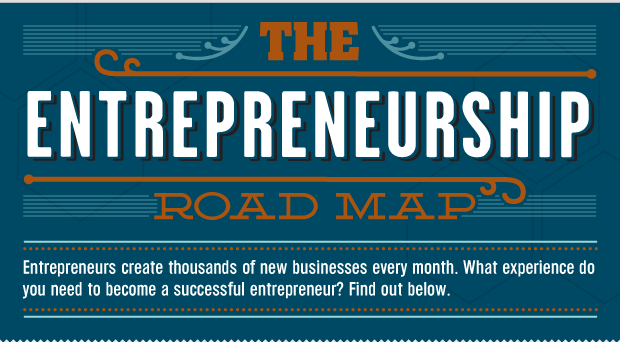
You are resolved to become an entrepreneur. You have come up with a good idea and managed to put together a certain amount of money using what you had saved and what you borrowed from friends and family. You have set up a company with one or two of your good friends. In order to avoid extra costs you chose to work from home; or maybe you are hiring a small office space. You have your first customers and you are making out your first invoices. Things are moving, albeit slowly. Your idea is a good one and you were the first to launch the idea in the market. Although this is an advantage you must keep in mind that you may face competition any time. You need to move fast and grow fast. The trouble is neither your customer portfolio nor your human resources can yet allow for such rapid growth, and you lack the financial ability either. You believe that your business has potential and you think angel investors may take interest in your project. So you make this your progress plan. You prepare some best and worst case scenarios along with your projections and a 3-year business plan. You are now ready to have your meet with angel investors…
Individuals who decide to become entrepreneurs generally go through these stages. I have also met people who shiver at the thought of even meeting an angel investor. The reasons for this may vary but in my opinion the most common one is a lack of confidence. Since Turkish culture is not one that welcomes criticism I am sure that entrepreneurs are mentally struggling with endless questions such as “What if they do not like my idea?”, “What if no one is interested in my business?”, “What if my projections are not realistic enough?” or “What if my presentation is not good enough?” Whilst their minds are busy with these questions entrepreneurs sometimes neglect some other equally important questions and fail to take timely measures. Some critically important examples are as follows:
 Can others try to steal my idea?
Can others try to steal my idea?
Will I get the value I have in mind for my project?
Do the angel investors I am going to see have any experience specific to my industry?
Can I get feedback on the previous investments made by the angel investors?
Will the angel investors support my business financially only or will they also provide added value in terms of technical matters, networking and company management?
My experience tells me that if the entrepreneur who set up the business is not good at presenting their business, it is far better and more persuasive to let an eloquent partner to present it. Looking at it from the perspective of the angel investor, the investing party is looking for some reference points since they are taking a risk by participating in a business they know very little of. Another very important reference point is patent application… Support and grants from organisations such as KOSGEB (Small and Medium Enterprises Development Organisation) or TÜBİTAK (The Scientific and Technological Research Council of Turkey) are other important reference points for the investor. In my opinion it is also important that the project or initiative acquires funding from crowdfunding sites such as kickstarter[1] or indiegogo[2]… One thing to remember: even if such funding cannot be acquired, having applied to these sites will contribute greatly to brand perception. In addition, there are industry-specific overseas networks that offer mentoring services to entrepreneurs from across the world for a small monthly fee or a small partnership interest. Entrepreneurs often do not think about making use of such networks. Just imagine what kind of a positive impact such a partnership relationship with one of those networks would have on an angel investor, or how valuable the know-how to be transferred to you through such a network would be.
 You can blow a big balloon with fast puffs but if you do not stop when you should, it will burst. What is important is to blow frequent and short puffs into the balloon and to know where and when to stop.
You can blow a big balloon with fast puffs but if you do not stop when you should, it will burst. What is important is to blow frequent and short puffs into the balloon and to know where and when to stop.
The cure is: Sustainable Entrepreneurship
Just like angel investors, entrepreneurs too are taking certain risks by allowing investors to participate in their enterprise – regardless of the percentage of their shares. Since this is the case it will be more beneficial to the protection of your rights in the articles of association if you hire an experienced lawyer who works with entrepreneurs rather than finding a cheap lawyer through friends and family.
It is very likely that a financial and/or tax audit will be carried out on your business before any investment is made. Sound accounting records and good documentation as well as accessible and intelligible data contribute greatly both to presenting a corporate image and to the value of the business. One of the biggest mistakes made with regard to such audits is hiding information. This is especially the case if it is accompanied by an approach along the lines of “such things happen during the startup phase,” and contains unethical practices. Although hiding information may sound like an advantage at first, the hidden information will eventually surface and cause investors to lose trust.
You also need to do research about the angel investors whom you are going to allow into your business- just like they will be trying to learn even the smallest details about you. Entrepreneurs have the tendency to see angel investors as a source of financial support only. However, restricting the scope of angel investing to financial support also means restricting the chance for success. Angel investors must offer and be able to provide entrepreneurs with a wide spectrum of opportunities from networking and sharing management experience to technical support.
My final words on the matter will be about sustainability. The world is facing many problems including global warming, starvation, poverty, human rights issues and corruption, and we must keep these in mind and ask the following questions when we start a new business: Which problem am I helping to solve with this business? What is the scope of such solution – my interests only or is there more to it? What social or environmental impact will my business have? Is it a negative one that will consume future generations’ resources or is it a positive one that will add to those resources?
[1] US-based non-profit crowdfunding platform/website (See www.kickstarter.com).
[2] Non-profit crowdfunding platform which aims to raise money to support entrepreneurs and for charity purposes (See www.indiegogo.com).




No Comment